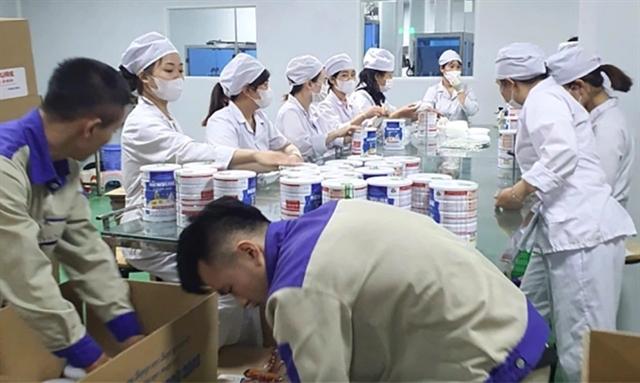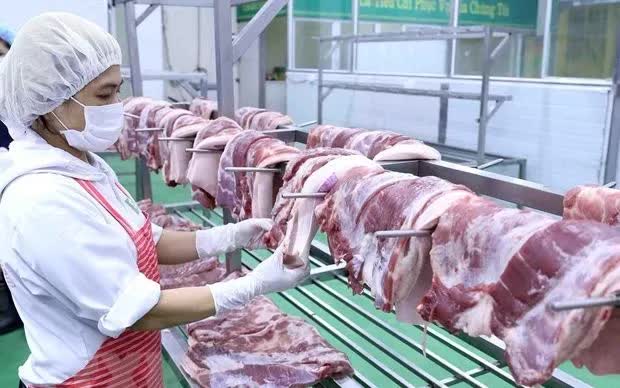 Society
Society


|
| Authorities discover workers packaging fake milk for distribution in HCM City. — Photo courtesy of the police |
HCM CITY — HCM City is grappling with a rise in counterfeit and substandard pharmaceuticals and dietary supplements due primarily to lax management and legal loopholes.
From early 2024 to mid-2025, city officials have reported 178 violations, seizing over 262,000 items worth over VNĐ15.4 billion (over US$593,000) and imposing fines exceeding VNĐ2.2 billion (nearly $85,000).
Four cases have been referred for criminal investigation.
In addition, 38 violations in dietary supplements led to the confiscation of over 18,000 products valued at VNĐ835 million and fines surpassing VNĐ786 million, primarily for smuggling and trademark violations.
Nguyễn Thị Trúc Vân, deputy head of the General Planning Department at the HCM City Drug Testing Institute, noted a troubling rise in counterfeit drug detections.
The number of counterfeit samples jumped from five in 2022 to 12 in 2023, and 40 in 2024. Of this number, 25 lacked active ingredients, and 15 herbal samples were altered with synthetic drugs, she noted.
The institute annually reports pharmaceuticals failing to meet quality standards set by regulatory bodies, she said.
Non-compliant samples rose from 10 in 2022 to 20 in 2023 but fell to 12 in 2024, primarily among traditional herbal medicines, she added.
Vân noted that samples came from law enforcement, provincial centres, hospitals, and concerned citizens.
In 2023, over 160 counterfeit drug cases were identified nationwide, leading to multiple arrests.
By 2024, 27 drugs were suspended due to quality issues, eight of which were counterfeit.
A serious problem is the use of legal channels to disguise the distribution of questionable pharmaceuticals and dietary supplements, according to the HCM City Market Management Department.
One tactic involves mixing legitimate medications with counterfeit products to gain consumer trust and evade regulators.
Some vendors falsely claim to be based in countries like Malaysia or Singapore, promoting their goods as "hand-carried" items on social media. They often pose as employees of reputable companies, misleading consumers.
In addition, many products labelled as “milk” or “medicine” are actually marketed as “health supplements” or “nutritional supplements”, confusing consumers and hindering informed purchasing decisions.
Legal loopholes
Significant legal loopholes have worsened the problem of counterfeit pharmaceuticals and questionable functional foods, according to experts.
Speaking at a recent meeting, Trần Việt Nga, director of the Food Safety Department, said lax regulations allow dishonest individuals to exploit these gaps.
For instance, businesses can self-declare the quality of their food products and supplements, which, while placing the onus on them for safety, also opens doors for fraud.
Overlapping inspection mechanisms among various ministries and local authorities often cause ineffective quality control, leaving inspection teams under-resourced and unable to tackle violations.
To tackle the issues, Prime Minister Phạm Minh Chính has recently proposed a special task force and a campaign until June 15 to combat smuggling, trade fraud, and counterfeit goods.
The Government is also amending the Penal Code to double penalties for producing and selling counterfeit food and agricultural products.
Experts have called for enhanced inspections, inter-agency cooperation, and a public hotline for consumer feedback, focusing on drugs and functional foods.
Experts also recommended increasing fines, closing regulatory gaps, and using technology like QR codes for better product management.
Consumers should buy medications from licensed sources and scrutinise packaging, avoiding purchases from social media or “miracle drug” claims, they noted. — VNS




